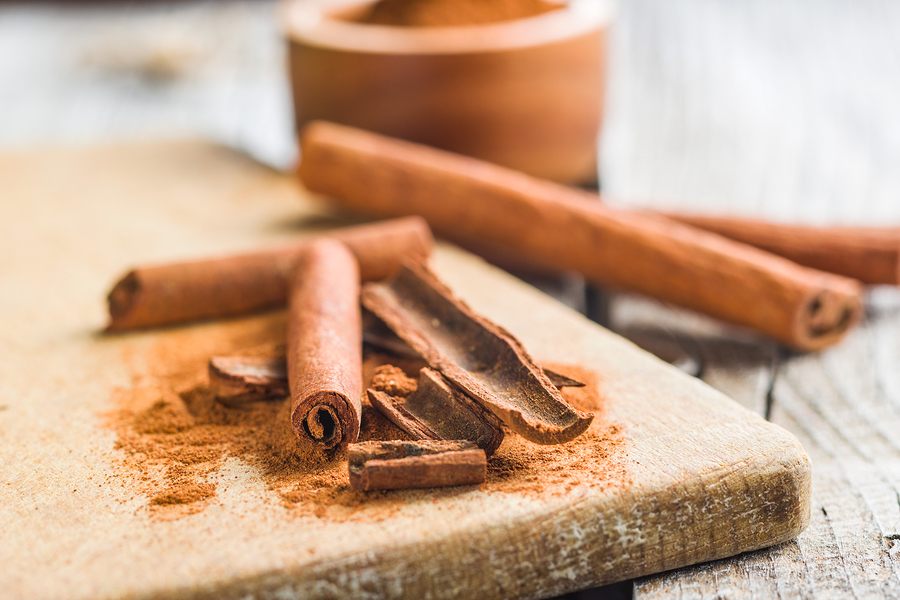
Cinnamon’s Sweet Surprise: It’s Good for Your Gut!
A favorite sweet herb for cooking, cinnamon has been used for centuries to treat health concerns such as fever, menstrual problems, congestion, sore throat and cough, and gastrointestinal distress. Preliminary research shows that cinnamon helps support the optimal environment for “friendly” gut bacteria to thrive, while suppressing the growth of “unfriendly” bacteria. This effect appears to be adaptogenic, meaning the bioactive chemicals in cinnamon adjust to your body’s specific needs.
Cinnamon has four main varieties, with dozens of subtypes. The two most commercially used are Cinnamomum cassia – aka Cassia Cinnamon or Chinese cinnamon, and Cinnamon zeylanicum – aka Ceylon or True Cinnamon, from Sri Lanka. The other two, Saigon and Korintje, are often used for their essential oils. Each contains a varying amount of biologically active compounds.
Ceylon is the most commonly studied because it has the lowest levels of coumarin, which is high in other varieties, and can be toxic to the liver. Preliminary evidence suggests that Ceylon has anti-microbial, anti-parasitic, antioxidant and free radical scavenging properties. This means it supports the body’s innate processes for reducing inflammation, protecting the cells from damage, supporting detoxification, and maintaining the integrity of tissues, particularly in the intestinal lining. In a nutshell, cinnamon appears to exert its beneficial effects on the gut by supporting a healthy balance of beneficial bacteria, while decreasing the inflammatory effects of “unfriendly” bacteria.
Almost every part of the cinnamon tree, including the bark, leaves, flowers, fruits and roots, has some medicinal or culinary use. The chemical composition can vary drastically in each of these parts, which suggests each may have different effects in the body as well. As a medicinal supplement, each of us responds to different doses and forms of cinnamon whether used in cooking or taken as a supplement. Because cinnamon can change the way some medications work, it’s important to speak with a holistic physician before taking a cinnamon supplement.
Resources
Ou, J., Cottrell, J., Ha, N. et al. “Potential of in vivo real-time gastric gas profiling: a pilot evaluation of heat-stress and modulating dietary cinnamon effect in an animal model.” Sci Rep 6, 33387 (2016). https://doi.org/10.1038/srep33387 Accessed 30 Mar 2020
Ranasinghe, P. et al. Medicinal properties of ‘true’ cinnamon (Cinnamomum zeylanicum): A systematic review. BMC Complement. Altern. Med. 13, 275 (2013). Accessed 30 Mar 2020
Muhammad J, Zaidi S, Shaharyar S, et al. Anti-inflammatory effect of cinnamaldehyde in Helicobacter pylori induced gastric inflammation. Biol Pharm Bull 2015;38:109-115.
Chart Depicting Types of Cinnamon
Examine.com: Cinnamon Essential Benefits, Effects & Information. Accessed 30 Mar 2020
World’s Healthiest Foods: Cinnamon (ground)
Hlebowicz, J. et al., “Effect of cinnamon on postprandial blood glucose, gastric emptying, and satiety in healthy subjects.” Am J Clin Nutr. (2007 Jun) 85:6,1552-6. Accessed 4 Dec 2016 (full text)

